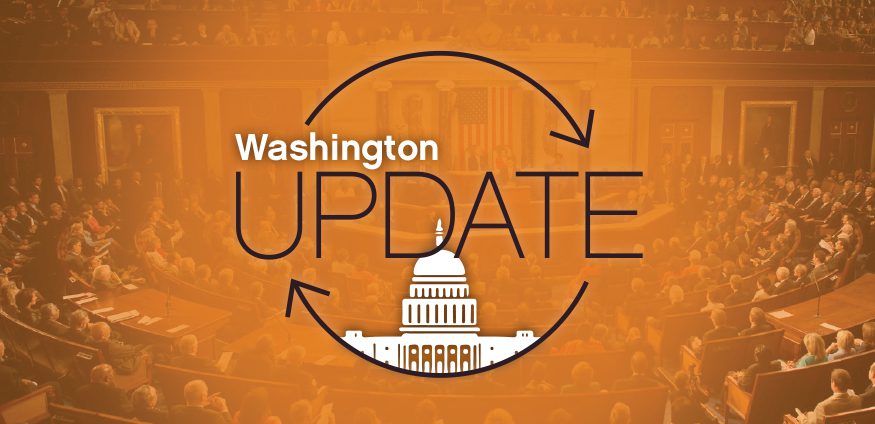Global Food Security Act/Feed the Future
House
- The House is expected to vote on the bill tonight. The Foreign Affairs and Agriculture Committees reached agreement last week on matters that were essentially jurisdiction issues. The bill was filed yesterday with 123 cosponsors. The bill is on the suspension calendar, a legislative procedure meaning debate on it is time-limited and no amendments are allowed. This process also requires a two-thirds majority in favor to pass. (Bread’s Facebook page and blog will have news of the vote.)
- The bill included language that specifies that it will not affect or supersede any nutrition or food-security programs administered by the U.S. Department of Agriculture.
Senate
- The bill is still being negotiated, and there have been a couple of holds (a legislative procedure allowed with the bill’s current status) placed on it on the Republican side. The offices of Sens. Johnny Isakson (R-Ga.) and Bob Casey (R-Pa.) are trying to track down the holds in order to resolve them. At this point, we do not know who has placed the holds or for what reason.
- The Congressional Budget Office has reviewed the Senate bill and has declared it budget-neutral.
See Bread’s analysis of this bill.
Child Nutrition Reauthorization
- The draft discussion child nutrition bill of the House Education and Workforce Committee was leaked late last week. The committee has yet to provide details or a date for a hearing or markup. Bread obtained a copy of the bill text and met with majority and minority staff. Our understanding of the bill is that, while it includes some positive provisions, it would limit how many children will be eligible for free school meals.
- The biggest change affecting eligibility amends what is known as the community eligibility provision (CEP). Under current law, schools in high-poverty areas (defined as where at least 40 percent of children qualify for free school meals) have the option to serve meals to all students at no charge. The current provision allows more children to participate in school meals while streamlining meal programs and reducing paperwork. The Education and Workforce Committee’s discussion draft would change the threshold at which schools are allowed to participate in CEP from 40 percent to 60 percent. We are assuming the cost savings from the CEP change will pay for some of the more positive provisions in the bill.
- The draft bill also includes a 2-cent increase in reimbursement for breakfast programs, allows for streamlining of summer and after-school meals, and funds a summer electronic benefit transfer (EBT) pilot project.
- There is no sign of agreement yet on a budget blueprint, and there is no floor debate on the House resolution scheduled for this or next week. Despite that, House appropriators will move forward on several annual spending bills this week, although they could be on a collision course with fiscal conservatives if or when they hit the House floor. The bills will be drafted on the assumption that Congress would approve a $1.07 trillion overall limit on discretionary spending. The problem for Speaker Paul Ryan and appropriators is that this figure doesn’t sit well with most House Republicans, who voted against a bipartisan budget deal last year (PL 114-74) that would allow for that much spending in the fiscal year that begins Oct. 1.
- The big unknown is whether the Speaker will cave to conservatives’ demands that they will consider the higher discretionary spending if an equivalent amount of entitlement program funding was cut. To that point, there is an important hearing on Thursday on changes to the appropriations process. A House Rules subcommittee may consider changing a rule to allow entitlement programs to be cut as part of the appropriations process, instead of through separate legislation. Putting mandatory spending in the hands of appropriators could provide the guarantee sought by conservatives that such spending cuts would be enacted. However, it would also be very dangerous to some of Bread’s domestic hunger priorities.
- Regardless of the budget, appropriators appear to be forging ahead. The House Appropriations Committee plans three markups of fiscal year 2017 appropriations bills on Wednesday along with consideration of 302(b) subcommittee allocations. Included among the three markups is a subcommittee markup of the Agriculture appropriations measure (which includes international food aid and SNAP benefits) on Wednesday.
- Senate Majority Leader Mitch McConnell (R-Ky.) has vowed to forge ahead given that the House continues to be gridlocked over its budget resolution. The Senate Appropriations Committee plans to plow through two subcommittee markups on Wednesday and send the bills to the full committee on Thursday. The full Senate panel also will disclose its subcommittee allocations, known as 302(b)s, on Thursday. We expect the Senate appropriations committee to move in the next few week on the Agriculture appropriations measure.
Act Now!
Call (800-826-3688) or email your senators now. Tell them you support the Global Food Security Act (S. 1252/H.R. 1567), which will put us on course to end hunger by 2030.



